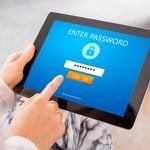10 Things Your Computer Person Won’t Tell You
Get the inside scoop as experts share their best computer tips—from how to protect your PC to how to fix common problems.
- Keep it clean. On a PC, run Disk Cleanup and Disk Defragmenter at least once a month. This will store files more efficiently so your system doesn’t slow down. After about four years, your computer is elderly. If you’re shelling out for a blazing-fast Internet connection, pony up for a new model.
- Check the cables. “People are always shocked that a cable came loose,” says Geek Squad agent Derek Meister. Of course, everything that needs power is plugged into an outlet, right?
- Got neighbors? If you do, protect your home wireless network with a password. “If a person knows what he’s doing, getting into a computer on a non-encrypted net-work is easy,” says Aaron Schildkraut from myhometech.net.
- You backed up your data, right? External hard drives with lots of memory now sell for under $200, and automated programs like Cobian Backup or Apple’s Time Machine make regular backups a no-brainer. Secure online backup services save your data offsite should anything happen to your home.
- If you travel with your laptop, get a lock. A 2007 survey by the Computer Security Institute found that 50 percent of respondents had a laptop or other mobile device stolen in the past year. A simple cable lock (starting at about $20) lets you physically secure your laptop anywhere you go.
- Remember: If your company owns the computer, they own what’s on it, too—even your email in some cases. Act accordingly.
- Turn it off, turn it back on. “Nine times out of ten, rebooting your computer-and any equipment that connects to it-will solve the problem,” says Schildkraut.
- You can’t come first. Just because we’re “buddies” at work, don’t expect me to come running every time you’ve got a problem. I’ve got a slew of IT problems to fix.
- We’re like Santa: We know if you’ve been bad or good. Fessing up to what really happened right before the system crashed is going to save time-and I’m going to figure it out anyway.
- Use “strong” passwords. Meister suggests combining letters and numbers-but not your birth date-to create a “base” password, and adding a unique suffix for each site you use. If your base password is your spouse’s initials and your anniversary date (say, SP061789), your Amazon password might be “SP061789AM.”
Learn even more tips in 10 More Things Your Computer Person Won’t Tell You.
Originally Published: January 18, 2011



